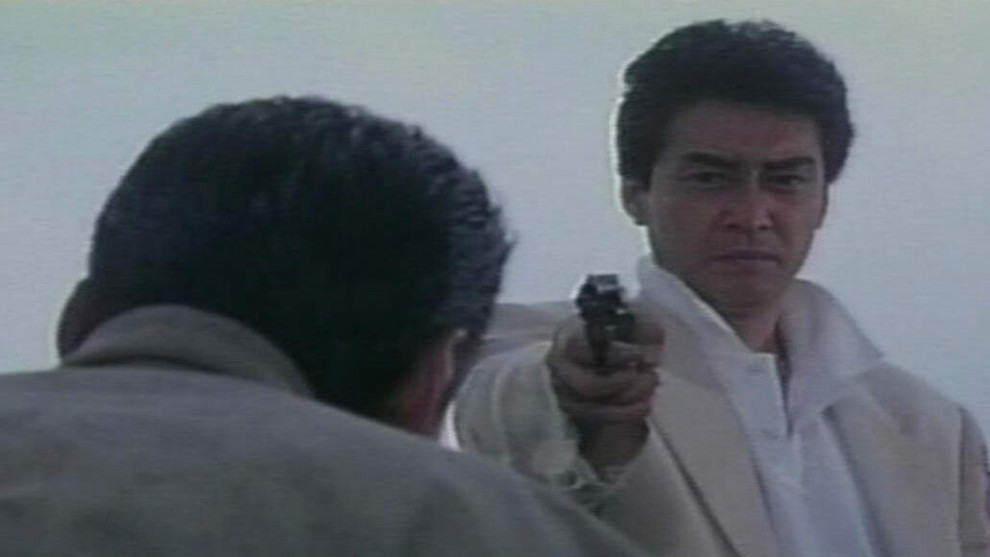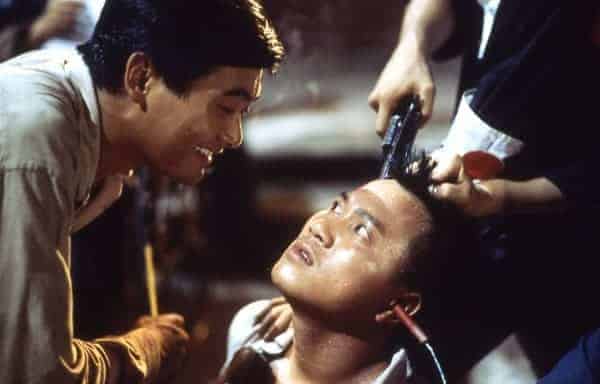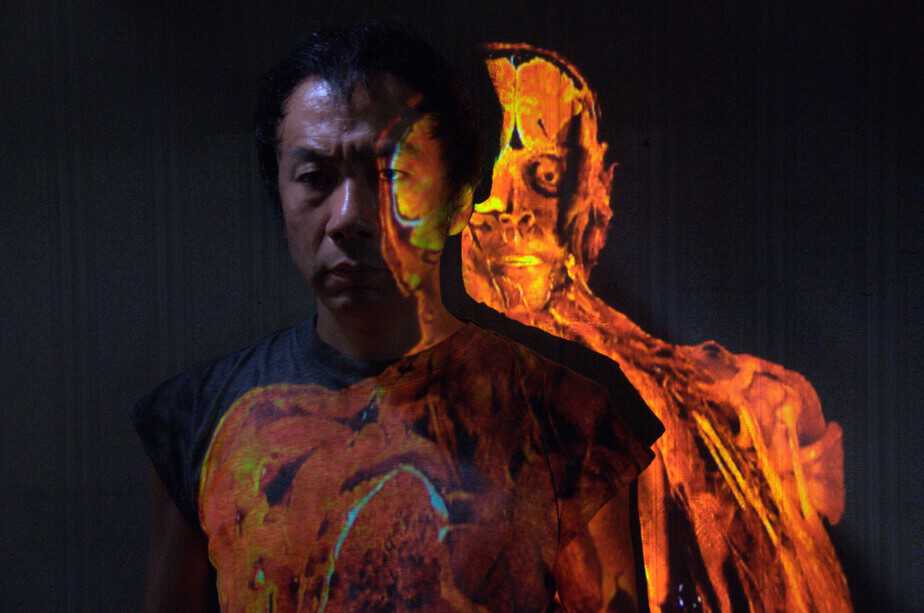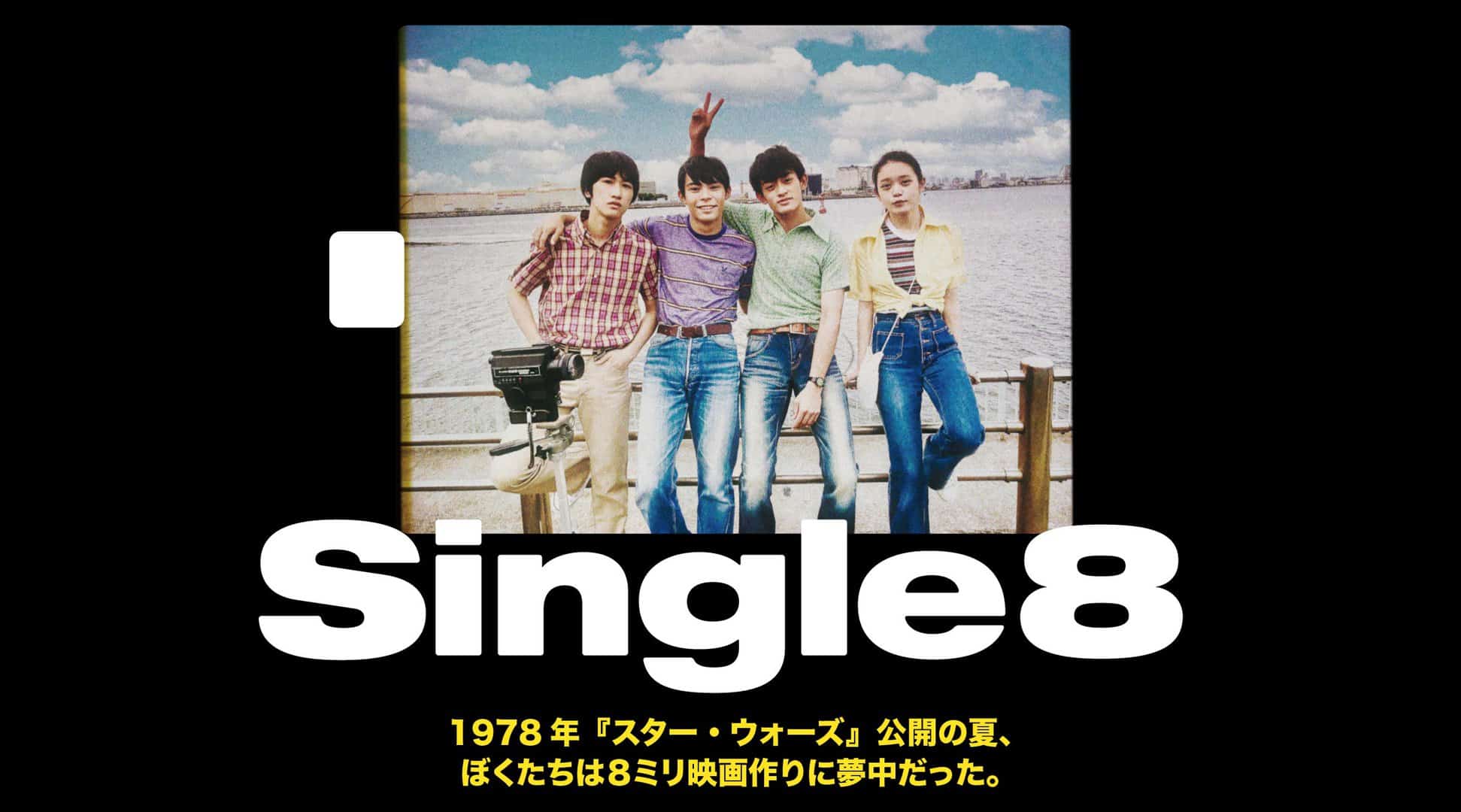– “So why did you become a yakuza?”
– “Do you need a reason to become a yakuza in this country?”
When Shoichi Yomi (Hiroyuki Watanabe) takes on a kamikaze mission to eradicate a rival crime faction single-handedly, it ends tragically with him in a coma, tied to a hospital bed.
10 years later, Yomi wakes up to everyone's surprise, only to see that the power lines have shifted, and new alliances formed. He seeks out his old buddy Eto (Tatsuo Yamada), but it becomes clear soon that too many people would have preferred for him to stay comatose. Yomi is banished to Hiroshima on some false pretence, where he starts putting together a comeback and revenge plot to settle the debt once and for all.
Buy This Title
“Shinjuku Outlaw” is an deceptively ordinary Miike film. It's one of Miike's numerous V-Cinema (straight to video) entries that deals its cards fast and dirty. The low production value doesn't stop the film from being an engaging viewing experience all the way through, as it manages to balance the numerous (ultra)violent action scenes with several more lyrical subplots – the duplicitous relation with Eto, the aspiration for a more tranquil life (even moment by moment) with the Taiwanese call girl (Ruby Moreno), or the world-weary two-faced cop Tagami (Kiyoshi Nakajo), who knows he's way too deep in the game now to be able to turn back. And there is an undeniable melancholic-tragic streak in Yomi that, paired with Watanabe's rock-like delivery, paints a really charismatic central figure.
There is a sense of alienation and non-belonging running through the film, accentuated most by the theme of national identity, foreign invasion (where the police and yakuza become strange bedfellows, both interested in keeping Japan to the Japanese) and blurred lines of loyalty. Japan's crime underworld is under attack of “delinquent Asian and Middle and Near Eastern gangs”. Small-time yakuza and Yomi's driver Tsuji is originally from Peru, and utters to Yomi in one scene: “Now I am of no nationality”. Yomi's nameless call girl partner is probably Taiwanese (the actress Ruby Moreno originates from the Philippines) and her words echo the babel of nations: “I hate them all. The Japanese, Chinese, Koreans, Filipinos”. The main contender to the throne of the Crime Lord, the mysterious Fang, comes from Taiwan, and when a policeman uses the phrase “The Taiwan Mafia” in one scene, he might as well have said “The Mongol Horde”. The aversion is clear as day. So is the fear. They are coming here to take what is ours and we have to show them their place. “Get back to your country”, snarls Yomi to a Taiwanese underling, before shooting him in the head. “Shinjuku Outlaw” treads a fine line between social commentary and hate speech, but it's hard to believe that Miike has any nationalist agenda here; it's just the sign of the End Times. It's still likely though, that the 1994 film is edgy enough to piss off some interest groups today.

When the premise of “Shinjuku Outlaw” echoes another popular Western action story of the time, Steven Seagal's “Hard to Kill” (1990) that was released just a few years before, Miike also seems to base his film partly on “Shinjuku Outlaw: Buttobase” (“Step on the Gas”) – a Toshiya Fujita's 1970 film of roughly the same title, where two outlaws join forces to take down the crime syndicate over a bunch of drugs. Which is roughly what happens here.
Through Fujita, it is also intriguing to speculate on the type of the character Yomi represents. Fujita is well known for his “Lady Snowblood” (1973) that was supposedly main inspiration for Tarantino's “Kill Bill”. Yomi is not very far from Lady Snowblood / The Bride – a killing machine bent on revenge; a lone sword wielder against a horde of enemies.
“Shinjuku “Outlaw” is filthy and violent enough to attract the attention of the Video Nasties crowd, presents intriguingly fresh look on national loyalties, and gives us a strong central character to empathize with, although he's a gangster killer.
It pulls a lot of weight for a video movie, which, given it's a Miike film, shouldn't come as a surprise.
















